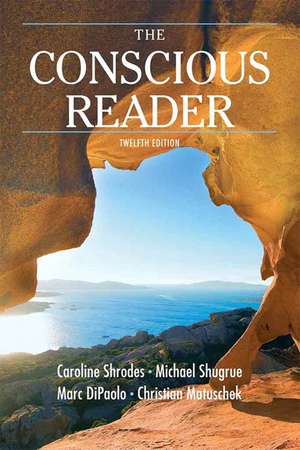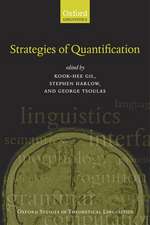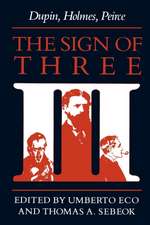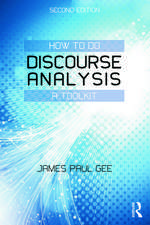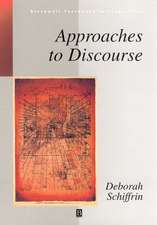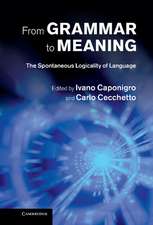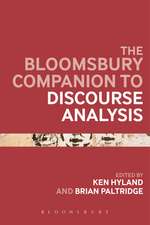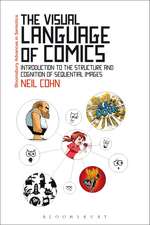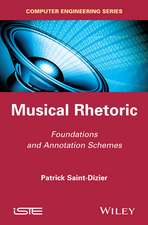The Conscious Reader: Mycomplab
Autor Caroline Shrodes, Michael Shugrue, Marc DiPaoloen Limba Engleză Paperback – 31 dec 2010
Preț: 793.72 lei
Preț vechi: 1030.81 lei
-23% Nou
Puncte Express: 1191
Preț estimativ în valută:
151.90€ • 164.94$ • 127.59£
151.90€ • 164.94$ • 127.59£
Carte disponibilă
Livrare economică 01-15 aprilie
Preluare comenzi: 021 569.72.76
Specificații
ISBN-13: 9780205803286
ISBN-10: 0205803288
Pagini: 750
Dimensiuni: 150 x 224 x 28 mm
Greutate: 1.04 kg
Ediția:12
Editura: Longman Publishing Group
Seria Mycomplab
Locul publicării:New York, United States
ISBN-10: 0205803288
Pagini: 750
Dimensiuni: 150 x 224 x 28 mm
Greutate: 1.04 kg
Ediția:12
Editura: Longman Publishing Group
Seria Mycomplab
Locul publicării:New York, United States
Descriere
This classic thematic anthology is widely admired for its exceptionally rich collection of essays, personal writing, fiction and poetry, and for its ground-breaking inclusion of classic and contemporary images.
Renowned for the quality and range of its selections, The Conscious Reader presents over 120 readings representing a range of genres, a wide array of culturally diverse authors and fascinating topics, and a broad range of academic disciplines, including art, cultural studies, education, psychology, philosophy, politics, science, technology, and environmental studies. The works range from the classical—Plato's Allegory of the Cave—to the contemporary— Jhumpa Lahiri, Peggy Orenstein, and paired essays on the vampire cults in popular culture—and from political figures like Barack Obama and Colin Powell to generational icons like Melissa Etheridge, John Lennon, and You Tube sensation Taylor Mali. Brief, flexible apparatus includes an introduction to each theme and helpful headnotes, discussion questions, and writing assignments for each selection. Perhaps the most distinguishing feature of The Conscious Reader is its inclusion of a cutting-edge selection of images designed to provoke discussion and analysis.
Renowned for the quality and range of its selections, The Conscious Reader presents over 120 readings representing a range of genres, a wide array of culturally diverse authors and fascinating topics, and a broad range of academic disciplines, including art, cultural studies, education, psychology, philosophy, politics, science, technology, and environmental studies. The works range from the classical—Plato's Allegory of the Cave—to the contemporary— Jhumpa Lahiri, Peggy Orenstein, and paired essays on the vampire cults in popular culture—and from political figures like Barack Obama and Colin Powell to generational icons like Melissa Etheridge, John Lennon, and You Tube sensation Taylor Mali. Brief, flexible apparatus includes an introduction to each theme and helpful headnotes, discussion questions, and writing assignments for each selection. Perhaps the most distinguishing feature of The Conscious Reader is its inclusion of a cutting-edge selection of images designed to provoke discussion and analysis.
Cuprins
Contents
** indicates new to this edition
Preface I. READING IMAGES
Scott McCloud: The Language of Comics
E. M. Forster: Art for Art’s Sake
Susan Sontag: Regarding the Pain of Others
**David Wall: It is and It Isn’t: Stereotypes, Advertising, and Narrative
Peggy Orenstein: What’s Wrong With Cinderella?
**Chris Sullentrop: Transformers
**Margaret Atwood: Pornography
Color Art Portfolio
II. CONSCIOUS READING, INTELLIGENT WRITING
Notebook
Stephen King: On Writing
Malcolm X: A Homemade Education
Flannery O’Connor:The Teaching of Literature
Personal Writing
Virginia Woolf: The Angel in the House
Essays
Joseph Williams and Greg Colomb: Argument, Critical Thinking, and Rationality
Patricia Kubis and Robert M. Howland: How to Develop a Good Style
**Martha Brockenbrough: Does IM Make U Dum?
**Katie Hafner:Seeing Corporate Fingerprints in Wikipedia Edits
**Julie J.C.H. Ryan: Student Plagiarism in an Online World
Fiction
**Henry David Thoreau: Reading
Poetry
**Taylor Mali: The The Impotence of Proofreading
III. PERSONAL VALUES AND RELATIONSHIPS
Notebook
**Dan Quayle: Restoring Basic Values
Constance Matthiessen: Harry Potter and Divorce Among the Muggles
Personal Writing
Colin Powell: The Good Soldier
Judith Ortiz Cofer: Casa: A Partial Remembrance of a Puerto Rican Childhood
Mohandas K. Gandhi: My Faith in Nonviolence
Jhumpa Lahiri: My Hyphenated Identity
Nancy Mairs: On Being a Cripple
Alfred Lubrano: Blue-Collar Roots, White-Collar Dreams
Essays
Benoit Denizet-Lewis: Friends, “Friends with Benefits,” and the Benefits of the Local Mall
Carson McCullers: Loneliness … an American Malady
Fiction
Kate Chopin: A Respectable Woman
Poetry
**Rudyard Kipling: If
T. S. Eliot: The Love Song of J. Alfred Prufrock
Anne Sexton, Her Kind
William Shakespeare: Sonnet 29, Sonnet 116
IV. EDUCATION
Notebook
**Samuel G. Freedman: New Class(room) War: Teacher versus Technology
**Maggie Jackson: Distracted: The Erosion of Attention and the Coming Dark Age
Personal Writing
**Katha Pollitt: Summers of Our Discontent
Essays
**Plato: The Allegory of the Cave
**Earl Shorris: Education as a Weapon in the Hands of the Restless Poor
**Drew Gilpin Faust: The University’s Crisis of Purpose
Lewis Thomas:The Humanities and Science
Bruno Bettelheim: The Child’s Need for Magic
Fiction
Anton Chekov: The Bet
Poetry
Langston Hughes: Theme for English B
V. POPULAR CULTURE
Notebook
**Guillermo del Toro and Chuck Hogan: Why Vampires Never Die
**Christine Seifert: Bite Me! (Or Don’t!): Twilight as Abstinence Porn
Personal Writing
**Michael Albernethy: Male-Bashing on TV
**Gloria Steinem: Wonder Woman
Essays
Steven Levy: Facebook Grows Up
**Jay Weiner: How to Take Back Sports
**Sherry Turkle: Cuddling Up to Cyborg Babies
Joe Woodard: Pumped, Pierced, Painted, and Pagan
Eric Schlosser: Fast Food Nation
Fiction
Steven Moffat: “What I Did on My Christmas Holidays” By Sally Sparrow
Poetry
John Lennon: Working Class Hero
VI. ART AND SOCIETY
Notebook
Melissa Etheridge: Music as a Safe Haven
Marilyn Manson: Columbine: Who’s Fault is It?
**Charles Taylor: The Morality Police
Personal Writing
**Ludwig von Beethoven: The Helligenstadt Testament
Glenn Kurtz: Practicing
Essays
**Andrea Frasier: Why I Would Rather Have a Day Job
**George Orwell: Politics and the English Language
Roger Ebert: Great Movies
**Roger Rosenblatt: What’s That to Us?
Pete Rojas: Bootleg Culture
Fiction
Willa Cather:The Sculptor’s Funeral
Poetry
Sonia Sanchez: A Poem for Ella Fitzgerald
Walt Whitman: Poets to Come
VII. SCIENCE AND CIVILIZATION
Notebook
**David Smith: 2050, and Immortality is Within Our Grasp
Paul Davies: How to Build a Time Machine
Personal Writing
**Tom Wolfe: One Giant Leap to Nowhere
Essays
Stephen Jay Gould: Sex, Drugs, Disasters, and the Extinction of the Dinosaurs
David Quammen: Was Darwin Wrong?
Nicholas Kristof: Warm, Warmer, Warmest
**James Howard Kunstler: The Long Emergency
Steve D. Levitt and Stephen J. Dubner: Freakenomics: The Hidden Side of Everything
Fiction Alan Lightman: A Place Where Time Stands Still
Poetry
**Affonso Romano De’Sant Anna:Letter to the Dead
VIII. FREEDOM AND HUMAN DIGNITY
Notebook
Anya Kamenetz: Generation Debt
**Barbara Ehrenreich: Selling in Minnesota
Personal Writing
**Martin Luther King, Jr.: Letter from Birmingham Jail
Essays Thomas Jefferson: The Declaration of Independence
The Declaration of the Rights of Man
Elizabeth Cady Stanton and Lucretia Coffin Mott: Seneca Falls Convention
Abraham Lincoln: The Gettysburg Address
William Faulkner: Nobel Prize Award Speech
Chief Seattle: Speech on the Signing of the Treaty of Port Elliott, 1855
Cornel West: On Affirmative Action
**Andrew Sullivan: A Conservative Case for Gay Marriage
**Mary Gordon: A Moral Choice
Fiction
Edwidge Danticat: Breath, Eyes, Memory
Poetry
Reynolds Price: Tom, Dying of AIDS
Matthew Arnold: Dover Beach
Taha Muhammad Ali: Revenge
IX. GLOBALISM, NATIONALISM, AND CULTURAL IDENTITY
Notebook
**Barack Obama: A Lasting Peace
Anthony Shadid: Legacy of the Prophet
Wesley Clark: The Next War
Howard Gardner: Leading Beyond the Nation-State
Personal Writing
Chris Hedges: The Ten Commandments in America
**Salman Rushdie:Imagine There’s No Heaven
Essays
**Peggy Noonan: The Case for Getting Off Base
Niccolo Machiavelli: Of Cruelty and Clemency, and
Whether It Is Better to Be Loved or Feared
Aung San Suu Kyi: Freedom from Fear
**Oscar Wilde: The Soul of Man Under Socialism
Anna Quindlen: Immigration: Newcomers by Numbers
Fiction
Sherman Alexie: What You Pawn I Will Redeem
Poetry
Sarah Littlecrow-Russell: Apology to the Wasps
Wilfred Owen: Dulce et Decorum Est
** indicates new to this edition
Preface I. READING IMAGES
Scott McCloud: The Language of Comics
E. M. Forster: Art for Art’s Sake
Susan Sontag: Regarding the Pain of Others
**David Wall: It is and It Isn’t: Stereotypes, Advertising, and Narrative
Peggy Orenstein: What’s Wrong With Cinderella?
**Chris Sullentrop: Transformers
**Margaret Atwood: Pornography
Color Art Portfolio
II. CONSCIOUS READING, INTELLIGENT WRITING
Notebook
Stephen King: On Writing
Malcolm X: A Homemade Education
Flannery O’Connor:The Teaching of Literature
Personal Writing
Virginia Woolf: The Angel in the House
Essays
Joseph Williams and Greg Colomb: Argument, Critical Thinking, and Rationality
Patricia Kubis and Robert M. Howland: How to Develop a Good Style
**Martha Brockenbrough: Does IM Make U Dum?
**Katie Hafner:Seeing Corporate Fingerprints in Wikipedia Edits
**Julie J.C.H. Ryan: Student Plagiarism in an Online World
Fiction
**Henry David Thoreau: Reading
Poetry
**Taylor Mali: The The Impotence of Proofreading
III. PERSONAL VALUES AND RELATIONSHIPS
Notebook
**Dan Quayle: Restoring Basic Values
Constance Matthiessen: Harry Potter and Divorce Among the Muggles
Personal Writing
Colin Powell: The Good Soldier
Judith Ortiz Cofer: Casa: A Partial Remembrance of a Puerto Rican Childhood
Mohandas K. Gandhi: My Faith in Nonviolence
Jhumpa Lahiri: My Hyphenated Identity
Nancy Mairs: On Being a Cripple
Alfred Lubrano: Blue-Collar Roots, White-Collar Dreams
Essays
Benoit Denizet-Lewis: Friends, “Friends with Benefits,” and the Benefits of the Local Mall
Carson McCullers: Loneliness … an American Malady
Fiction
Kate Chopin: A Respectable Woman
Poetry
**Rudyard Kipling: If
T. S. Eliot: The Love Song of J. Alfred Prufrock
Anne Sexton, Her Kind
William Shakespeare: Sonnet 29, Sonnet 116
IV. EDUCATION
Notebook
**Samuel G. Freedman: New Class(room) War: Teacher versus Technology
**Maggie Jackson: Distracted: The Erosion of Attention and the Coming Dark Age
Personal Writing
**Katha Pollitt: Summers of Our Discontent
Essays
**Plato: The Allegory of the Cave
**Earl Shorris: Education as a Weapon in the Hands of the Restless Poor
**Drew Gilpin Faust: The University’s Crisis of Purpose
Lewis Thomas:The Humanities and Science
Bruno Bettelheim: The Child’s Need for Magic
Fiction
Anton Chekov: The Bet
Poetry
Langston Hughes: Theme for English B
V. POPULAR CULTURE
Notebook
**Guillermo del Toro and Chuck Hogan: Why Vampires Never Die
**Christine Seifert: Bite Me! (Or Don’t!): Twilight as Abstinence Porn
Personal Writing
**Michael Albernethy: Male-Bashing on TV
**Gloria Steinem: Wonder Woman
Essays
Steven Levy: Facebook Grows Up
**Jay Weiner: How to Take Back Sports
**Sherry Turkle: Cuddling Up to Cyborg Babies
Joe Woodard: Pumped, Pierced, Painted, and Pagan
Eric Schlosser: Fast Food Nation
Fiction
Steven Moffat: “What I Did on My Christmas Holidays” By Sally Sparrow
Poetry
John Lennon: Working Class Hero
VI. ART AND SOCIETY
Notebook
Melissa Etheridge: Music as a Safe Haven
Marilyn Manson: Columbine: Who’s Fault is It?
**Charles Taylor: The Morality Police
Personal Writing
**Ludwig von Beethoven: The Helligenstadt Testament
Glenn Kurtz: Practicing
Essays
**Andrea Frasier: Why I Would Rather Have a Day Job
**George Orwell: Politics and the English Language
Roger Ebert: Great Movies
**Roger Rosenblatt: What’s That to Us?
Pete Rojas: Bootleg Culture
Fiction
Willa Cather:The Sculptor’s Funeral
Poetry
Sonia Sanchez: A Poem for Ella Fitzgerald
Walt Whitman: Poets to Come
VII. SCIENCE AND CIVILIZATION
Notebook
**David Smith: 2050, and Immortality is Within Our Grasp
Paul Davies: How to Build a Time Machine
Personal Writing
**Tom Wolfe: One Giant Leap to Nowhere
Essays
Stephen Jay Gould: Sex, Drugs, Disasters, and the Extinction of the Dinosaurs
David Quammen: Was Darwin Wrong?
Nicholas Kristof: Warm, Warmer, Warmest
**James Howard Kunstler: The Long Emergency
Steve D. Levitt and Stephen J. Dubner: Freakenomics: The Hidden Side of Everything
Fiction Alan Lightman: A Place Where Time Stands Still
Poetry
**Affonso Romano De’Sant Anna:Letter to the Dead
VIII. FREEDOM AND HUMAN DIGNITY
Notebook
Anya Kamenetz: Generation Debt
**Barbara Ehrenreich: Selling in Minnesota
Personal Writing
**Martin Luther King, Jr.: Letter from Birmingham Jail
Essays Thomas Jefferson: The Declaration of Independence
The Declaration of the Rights of Man
Elizabeth Cady Stanton and Lucretia Coffin Mott: Seneca Falls Convention
Abraham Lincoln: The Gettysburg Address
William Faulkner: Nobel Prize Award Speech
Chief Seattle: Speech on the Signing of the Treaty of Port Elliott, 1855
Cornel West: On Affirmative Action
**Andrew Sullivan: A Conservative Case for Gay Marriage
**Mary Gordon: A Moral Choice
Fiction
Edwidge Danticat: Breath, Eyes, Memory
Poetry
Reynolds Price: Tom, Dying of AIDS
Matthew Arnold: Dover Beach
Taha Muhammad Ali: Revenge
IX. GLOBALISM, NATIONALISM, AND CULTURAL IDENTITY
Notebook
**Barack Obama: A Lasting Peace
Anthony Shadid: Legacy of the Prophet
Wesley Clark: The Next War
Howard Gardner: Leading Beyond the Nation-State
Personal Writing
Chris Hedges: The Ten Commandments in America
**Salman Rushdie:Imagine There’s No Heaven
Essays
**Peggy Noonan: The Case for Getting Off Base
Niccolo Machiavelli: Of Cruelty and Clemency, and
Whether It Is Better to Be Loved or Feared
Aung San Suu Kyi: Freedom from Fear
**Oscar Wilde: The Soul of Man Under Socialism
Anna Quindlen: Immigration: Newcomers by Numbers
Fiction
Sherman Alexie: What You Pawn I Will Redeem
Poetry
Sarah Littlecrow-Russell: Apology to the Wasps
Wilfred Owen: Dulce et Decorum Est
Caracteristici
- A wide range of contemporary and classic authors, and of genres and themes, offers a flexible and pedagogically appealing collection of models for good writing.
- Selections grouped by genre—Personal Writing, Essays, Fiction, and Poetry—under 9 universal themes move students from questions about self-discovery and relationships to larger issues of culture, science, and technology and the goals of human freedom and dignity.
- Notebooks at the beginning of each section group together readings that encourage analysis and synthesis around a particular issue.
- Part II, On Being a Conscious Reader and an Intelligent Writer, supports the theme of this reader by bringing together thoughts about the importance of reading and writing by such diverse and well-known figures as Stephen King, Malcolm X and Flannery O’Connor, along with specific guidance on writing well by experts like Joseph Williams.
- A multi-page excerpt from Scott McCloud’s graphic essay,The Language of Comics, both discusses and represents the importance of visual literacy in our increasingly image-laden world. ·
- A section of full-color art and over 30 black-and-white photos provide provocative visual prompts for class discussion.
- An alternate rhetorical table of contents makes this a flexible collection for any teaching approach.
- A detailed Instructor's Manual includes a discussion of every selection in the text.
Caracteristici noi
- A new Part 1, ReadingImages, encourages students to “read” both classic and contemporary art in a variety of media, and offers essays about visual literacy which raise questions about the role of art in society, the intent of the artist, and the possible reactions of the audience.
- Thirty-seven new selections–almost a third of the book–offer models of good persuasive writing on a range of compelling contemporary topics including the “Great Recession” of 2008-2010; vampires in popular culture; the wars in the Middle East, and rabidly partisan politics; the future of higher education; and the transformative effects that new technologies may soon have on all of our lives.
- New readings in Chs. 2 and 4 wrestle honestly withthe challenges of teaching and learning in a technology-saturated world and offer guidance about how student interactions with technology–in-class texting, for example, or the use of Wikipedia and other online research sources–may impact their learning.
- A revitalized chapter on popular culture includes texts on topics rooted in cutting edge cultural context: robot toys (including Transformers and Furbys), ethics in sports (cheating in poker, steroids in baseball), male-bashing in sitcoms and commercials, and the surprising resurgence of popularity of vampires, from the romantic (Twilight, True Blood) to the more horrific and violent iterations (30 Days of Night, Daybreakers, Let the Right One In).
- An array of exciting new Notebooks–collections of related readings at the beginning of most parts–bring together persuasive texts on controversial issues and offer you fresh opportunities to add your own voice to contemporary debates.
